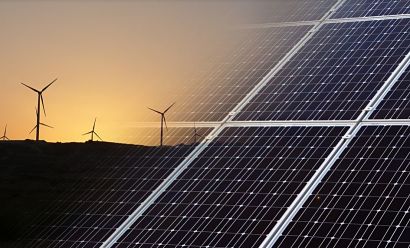
Energy trade association the Energy Industries Council (EIC) finds in this new report that despite more than half of the 230 new energy projects added in 2024 being renewable energy projects, the continent’s 2030 climate targets are coming under pressure as infrastructure struggles to keep pace.
Offshore wind, a key component of Europe’s energy transition, has reached 49 gigawatts in installed capacity, accounting for 30 percent of the region’s total wind output, but several large-scale projects have been delayed by supply chain disruptions and limited port infrastructure.
“There are specific bottlenecks in some industries that will take a long time to remove, like ports in Scotland or in the UK for offshore wind” said Luiza Marcolongo, EIC Energy Analyst and author of the report. The report shows that shortages in heavy-lift cranes and fit-for-purpose port facilities were particularly acute, citing the delay of the UK’s Sofia Offshore Wind Farm to 2026 as a prime example.
The findings are based on EICAssetMap proprietary data, which tracks operational assets across the energy spectrum. The Europe OPEX Insight Report offers a detailed sectoral breakdown across renewables, traditional fuels, and emerging technologies.
Solar capacity continued to surge, doubling from 23 GW in 2020 to 46 GW by the end of 2024, though not without challenges. Spain overtook England as the region’s leader, driven by strong policy support and robust project pipelines. The report cited Germany’s Witnitz Solar Park (605 MW) and Greece’s Faethon Solar Farm (504 MW) as key contributors.
The report refers to structural challenges that could stall progress in solar energy.
“The pace of permitting and the condition of the grid are defining the ceiling on how fast we can decarbonise” added Ms Marcolongo. “There’s a disconnect between the growth in variable renewables and the flexibility needed in the system to handle it. Storage helps, but without a coherent grid plan, it becomes a stopgap.
Battery storage is a key emerging growth area, with 83 of the 84 new storage projects since 2020 relying on battery technology. The UK’s Battery Strategy aims for supply chain dominance by 2030, while large-scale developments in Belgium and Romania signal broader regional uptake.
“The way we think about energy distribution hasn’t quite caught up with the shift in how we now produce electricity - moving from centralised to decentralised systems” said Claas Helmke, EIC’s Regional Director for Continental Europe. “To keep grid upgrades and expansion costs down, we need system-level thinking, more flexible grids and pricing, better demand-side management, and smarter storage solutions.”
Hydrogen, often seen as the long-term solution to industrial decarbonisation, remains at an early stage of commercialisation. The report records 41 new hydrogen plants commissioned since 2020, with Germany leading the way. But most remain small-scale or pilot projects, and key technical limitations, including underdeveloped demand infrastructure, have yet to be addressed.
The report details that different national strategies are impacting the overall progress. Poland, for example, is expanding solar and gas capacity but remains heavily reliant on coal, which is projected to provide 22 percent of its electricity by 2030. Denmark, on the other hand, leads the Climate Change Performance Index but has slowed decarbonisation in hard-to-abate sectors, such as industrial processes.
As Europe enters the second half of the critical 2020–2030 climate window, the report paints a picture of momentum tempered by material constraints.
For additional information:

